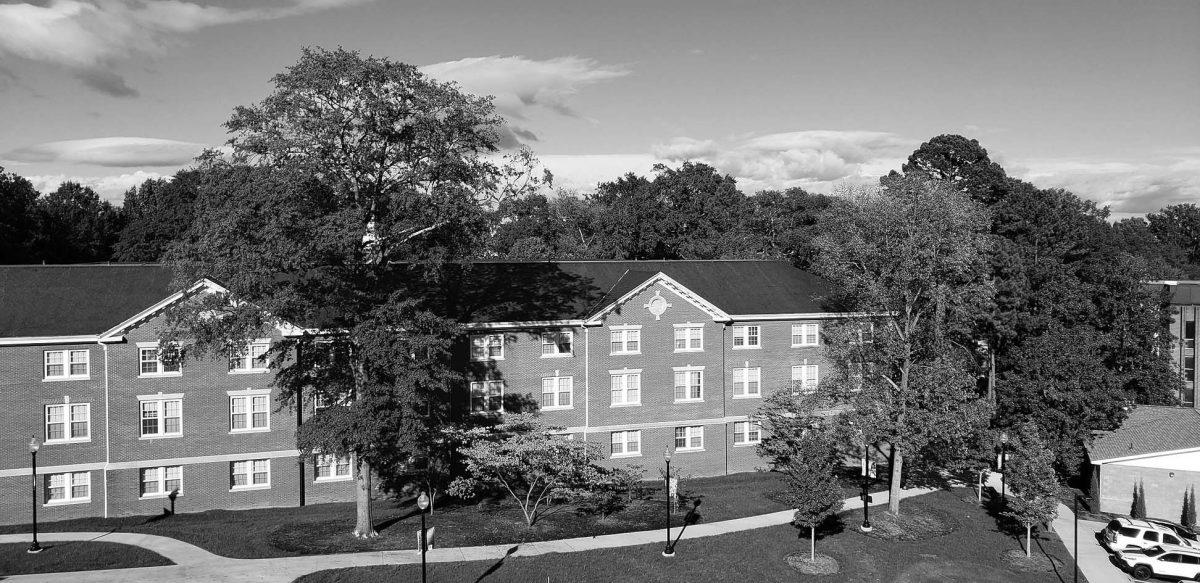In my time at Wofford – which amounts to a little over a year and a half – the changing of the names of Wightman, Shipp, and Carlisle Residence halls has loomed as an ever-present issue. While this has periodically culminated in on-campus protests about even broader issues surrounding the treatment of African-American students on campus, it seems the best response we may get from administration is a slow change.
Recently Wofford’s Board of Trustees released a statement responding to JEDI’s recommendation and responded positively to certain suggestions, such as adopting a new naming system for future residence halls, establishing a history committee and creating a campus historian.
Though these changes and another statement about future reconsideration of changing current residential hall names is promising, the Wofford education that the board champions in this statement has given me a proficient enough lens in both philosophy and ethics to see that there are major failings in the reasoning behind why they won’t change the names already.
Start with the sixth to last paragraph in the statement: “The Board prefers to be consistent, and we feel that this explanation, excerpted from an early JEDI working group report, helps to do so: ‘Historical investigation requires contextualization and objective analysis of available evidence. Most Americans find slave ownership morally repugnant in 2021; most white South Carolinians in the 1850s did not. The available records offer minimal insight.’ In agreement, the Board does not recommend that residence halls be renamed solely because the college’s first three presidents owned enslaved people. To do so would be to ‘demand of them a moral vision that would have been uncommon for their age.’”
Now, this is a common explanation used to justify the continued existence of statues and other monuments that you may see online or in the news, but the fundamental claim is one of moral cultural relativism. Cultural relativism (as a prescriptive ethical theory) asserts that the value of a moral action is created within the moral norms of the society of the one committing the action.
Now while the Board may be using JEDI’s historical contextualization of Wofford’s first three presidents, the conclusion they draw from it is mistaken, not to mention different from JEDI’s.
Many ethical theorists critique cultural relativism on the grounds that it lacks any moral standards to critique belief systems. I believe this is a valid critique, especially considering that at the time abolitionists did, in fact, exist – even in South Carolina.
Building on this, while these three presidents may have died over 100 years ago, the ideas they represented through their actions are still important today. This isn’t because we can change what they represent, but rather because what these people represent will always exist relationally to the students and faculty of today rather than that of the past.
So what does this fight to change the residential hall names really represent, especially for black students? I should be clear in that I cannot necessarily speak for them, and you will get different answers depending on who you ask, but, overall, what I’ve seen at the protests is that inaction by the board at Wofford represents a lot more than just names.
I remember particularly from one of the protests during the 2020-2021 school year many black students discussing how they felt the school viewed them. Whether they feel as if they are here so Wofford can say they’re a “diverse school” (blatant tokenism) or the many people of color student-athletes Wofford recruits feeling as if they’re only here for their athletic abilities, minority students don’t want to be viewed or objectified in this way.
What these students stressed, at least in my experience, was that they want to be viewed primarily as a student of Wofford College, a label that only white students still seem deemed to be privileged of. It is not enough to have a seat at the table, people must be able to sit at the table on their own terms while not having to feed into a system that only wants them if they fit a certain mold or help their image.
That being said, this is why changing the residential hall names is important to many students and faculty—it’s not that they want these people removed from Wofford’s history, but rather, when black students have to live and learn in buildings named after people that bought and sold their ancestors it does not come off as an environment that wants them there.
In the end, cultural relativism is not enough of a justification to continue slave owners’ honorary residential hall names. There were people at their time that were able to see the evil of owning slaves; just because they were a minority opinion should not justify the evil acts of the majority.
Ultimately, Wofford’s concerns should be vested in those who live and learn in its academic community today, rather than prioritizing the honoring of its founders who have been dead for so long that anyone that knew them passed long ago.































